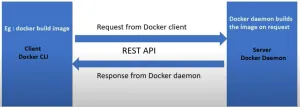
PHP 8: What's New and Improved?
PHP 8 is the latest major release of the PHP programming language, bringing a host of new features, performance improvements, and syntax enhancements. In this beginner-friendly guide, we'll explore the exciting changes introduced in PHP 8, with step-by-step examples to help you understand and leverage these new capabilities in your projects.
1. JIT Compiler: PHP 8 introduces a Just-In-Time (JIT) compiler, which can significantly improve the performance of PHP applications by compiling hot code paths into machine code. Let's see how to enable the JIT compiler and measure its impact on performance:
// Enable JIT compiler in php.ini
opcache.enable=1
opcache.jit=1255
2. Union Types: Union types allow variables, parameters, and return types to accept multiple types of values. This enhances type safety and flexibility in PHP 8. Let's define a function with union types:
function foo(int|float $num): void {
echo $num;
}
foo(5); // Output: 5
foo(3.14); // Output: 3.14
3. Named Arguments: Named arguments allow passing arguments to functions by specifying the parameter name, rather than relying on the order of parameters. This improves code readability and makes function calls more explicit. Here's an example of using named arguments:
function greet(string $name, string $greeting): void {
echo "$greeting, $name!";
}
greet(greeting: "Hello", name: "John");
4. Nullsafe Operator: The nullsafe operator (??=) provides a concise way to access properties or call methods on potentially null objects without causing errors. This helps streamline null checking in PHP 8. Let's see the nullsafe operator in action:
$address = $user->address->city ??= "Unknown";
5. Match Expression: The match expression is a more versatile and concise alternative to the switch statement, providing a simpler syntax for handling multiple conditions. Here's how to use the match expression:
$status = "success";
$message = match($status) {
"success" => "Operation successful",
"error" => "An error occurred",
default => "Unknown status"
};
echo $message;






